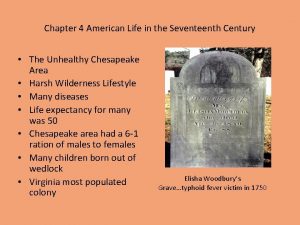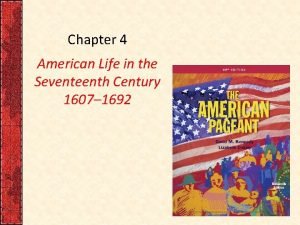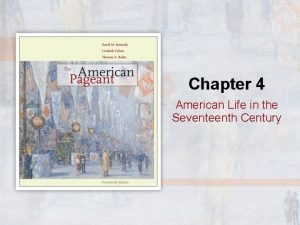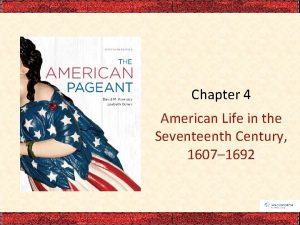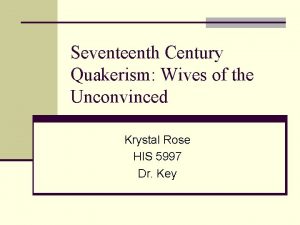Seventeenth Century Quakerism Wives of the Unconvinced Krystal






- Slides: 6

Seventeenth Century Quakerism: Wives of the Unconvinced Krystal Rose HIS 5997 Dr. Key

Quakersin 17 th Century England n Transcended the patriarchal relationship which otherwise marked every aspect of English life. n Refused to pay tithes (breech of monarchical relationship) and also granted spiritual equality to women. n Quaker women were still expected to be obedient to their husbands.

Exceptions to Spousal Obedience n Alice Hayes- Converted to Quakerism after marrying her husband. Endured years of spousal abuse from her husband, family, and friends. Stayed strong in her beliefs and eventually her husband died “in the faith. ” n Joan Sley- Converted to Quakerism after being wed. She also suffered years of mistreatment for her beliefs. After entering widowhood she became mildly successful.

Social Class of the Disobedient n Stone has suggested that patriarchal marriages were most supported by the lower classes. n Research by Michael Mac. Donald supports this theory with his analysis of the complaints given by lower and middle class clients to the astrological physician Richard Napier. n It showed that lower and middle class women were more likely to complain of an unhappy marriage than men.

Social Class of the Disobedient Cont. n Alice Hayes’ husband Daniel was a tenant farmer, which according to the Great Chain of Being placed him only two places above a beggar. Thus, before and after marriage she was most likely of the meaner sorts of people. n Joan Sley is reported to have become mildly successful after widowhood meaning she too was likely from the poorer classes.

Disobedience as a Reflection of Quakerism n Neither Joan Sley nor Alice Hayes were ever imprisoned for disrupting conformist congregations or refusing to pay tithes. Their disobedience within the marriage was strictly due to their commitment to the Quaker faith. n Though spiritual equality was granted to females within the Quaker religion, neither Alice nor Joan meant to extend that equality beyond the meeting hall walls.
